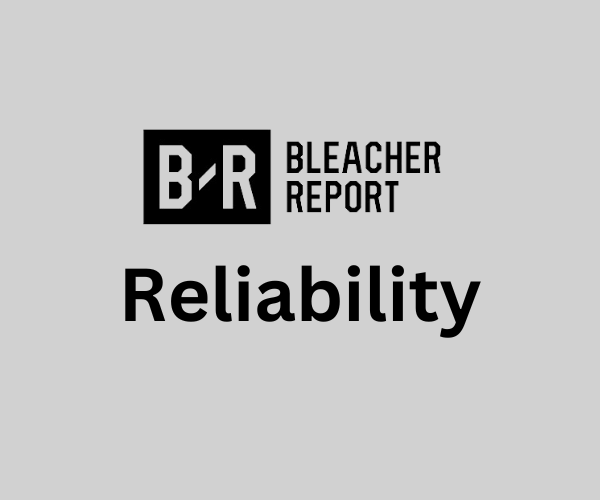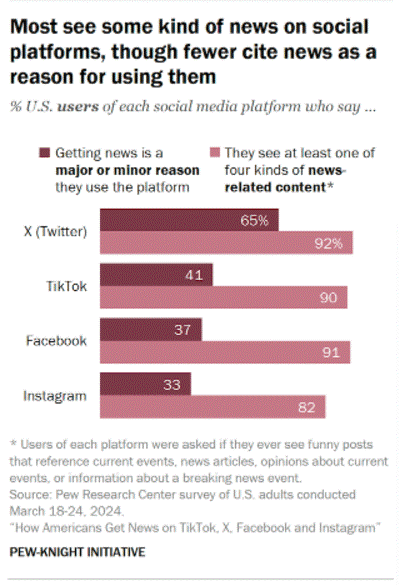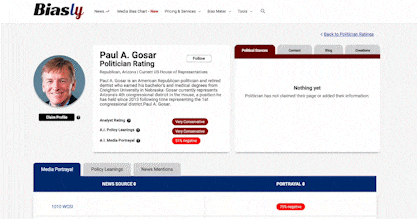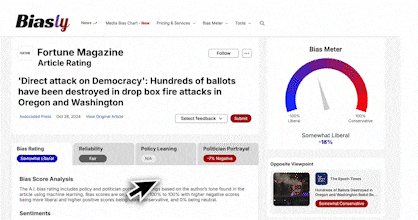
Bleacher Report is an athletic-focused news organization covering many aspects of the industry, from the NFL to the WWE, along with almost every sport. While many aspects of this agency do not relate to political issues, journalistic standards still apply and their product is expected to remain reliable. According to Similar Web, Bleacher Report receives over 33 million visits per month to its website, this amount of viewership makes it one of the top sources in the space.

Source: Pew Research
News on social media has increased in popularity since the platform’s beginning. However, news on these sites has been filled with controversy over the years as issues of bias and misinformation can easily take hold. Bleacher Report has a large presence on social media, with over 18 million followers on X and over 22 million followers on Instagram. This makes it one of the top agencies in terms of viewership for sports news on these sites. Considering the state of news on social media it is important to evaluate whether the publication is trustworthy.
Bleacher Report’s history has been checkered in terms of reliability in its articles, early in its existence the agency utilized an open publishing model, meaning it allowed anyone to publish on their site, with little editorial oversight some described the content as “low-quality”
Later, once Bleacher Report abandoned the open publishing strategy, it ran into additional issues regarding reliability. Some accused them of producing low-quality content in the form of ‘top 10’ lists and ‘slideshows’ solely to gain traction on the internet rather than creating quality content.
Bleacher Report’s use of less-than-qualified writers calls into question their reliability as a whole, and considering they have such a large impact on social media where many now get their news, we must investigate whether Bleacher Report is a reliable news source.
Does Reliability Matter?
Reliability, in general, refers to how trustworthy or accurate information, or in this case, a news source is. If we consider this definition, it quickly becomes clear why reliability is important in media sources. If we can’t trust the things we read then there isn’t much of a point in continuing to consume content from that source, after all. So how exactly can we gauge the reliability of a news source anyways?
There are several potential measures of reliability to look out for when trying to determine whether a media source is reliable or not. Red flags for an unreliable article can include the presence of wild unsubstantiated claims, facts dependent on other unreliable sources, heavy use of opinionated language, and more. Some indicators of a reliable news source, on the other hand, include things like:
- Absence of subjective/opinionated language in articles
- Credible sources cited (e.g., neutral sources, .gov, .edu websites)
- Facts and statistics backed by multiple relevant outside sources
- Use of primary sources when possible (e.g., interviews, quotes)
- Information that remains consistent across news sources
How Does Bleacher Report Fare in its Reliability?
The political reliability index developed by Biasly objectively assesses news organizations’ accuracy and trustworthiness. Bleacher Report’s overall Reliability Score has been rated as ‘Fair’ by Biasly.
Bleacher Report’s Source Analysis Score is ‘Fair,’ which suggests readers can trust some of the sources, links, and quotes provided by the news source. This score, which is based on A.I., focuses on assessing the quality of sources and quotes used including their number, lengths, uniqueness, and diversity.
However, since these scores are based on percentages and averages, individual articles could be more or less trustworthy depending on the context, author, and other factors. Later, we will analyze individual articles and see how some of these components can affect reliability.
Bleacher Report Accuracy and Reliability
Reliability is paramount when assessing news sources, a publication’s reliability differentiates that source from being considered trustworthy or that source being viewed as something that is not dependable. Considering Bleacher Report’s checkered history, it is important to investigate whether they are providing the most accurate and reliable information possible.
While overall ratings help gain an overarching perspective on a source, it is important to understand that ratings for individual articles published by that source can vary. Multiple factors can affect an individual article’s rating. One example of this can be seen in the Boston Herald which is rated as Good in Reliability overall. For example, the article “Debby Barrels Toward Florida” was rated as Fair in terms of Reliability, while the article “Trump Doesn’t Let Up Over Kamala Harris’ Racial Identity” was rated as Excellent in Reliability. Despite both articles being published by the Boston Herald, we observe a variation in their reliability ratings.
While the vast majority of Bleacher Report’s articles do not cover political issues as their main topics of coverage surround athletics, there are certain points at which these two areas intersect. Understanding how Bleacher Report reports on these issues is important as they boast such a large audience.
Quality of Facts and Sources Used
Bleacher Report, as discussed previously, sometimes encounters stories where athletic and political matters converge. One example of this is in the article “Biden Administration Proposes Rule Prohibiting School Bans on Transgender Athletes” where the author discusses potential changes in sports around the country due to a policy implementation from the Biden Administration. This story received a Bias Rating of Somewhat Liberal and a Reliability Rating of Fair according to Biasly, we will seek to understand the factors that led to this rating.
This article used 5 total quotes throughout, considering the length of the article this amount of quotes is acceptable, however, the author used only a single long quote and four short quotations with 3 or fewer words. This is not an ideal ratio for quotes and quote length, an abundance of longer quotes is preferred since it gives the author fewer chances to take the quotee’s words out of context. In contrast, short quotes are easy to take out of context as the lack of information surrounding the quote can allow the author to use that person’s words in a manner that the person did not intend. Although the author made use of short quotes throughout the article, it should be noted that the author did not take the quotes he used out of context.
The author of this article used three sources:
- “Biden Proposal Would Bar Schools from Enacting Outright Bans on Trans Athletes” (AP News, Somewhat Liberal)
- Miguel Cardona, Education Secretary (Biden Administration)
- High court: Trans Girl Can Run Girls Track in West Virginia (AP News, Somewhat Liberal)
The number of sources used in this article is not ideal, to release the most trustworthy information it is imperative to gather as many sources as possible to corroborate the facts claimed with verifiable sources. Although the author, in this case, presented the information factually, an increased number of trustworthy sources will improve the reliability of the article. Another problem with the evidence in this article is the leanings of the sources used, all three sources used are liberal-leaning, and since no opposite sources are used the reader may lack contextual information.
Selection and Omission Bias
Selection bias is when stories and facts are selected or deselected, often on ideological grounds, to create a narrative in support of the new sources’ ideology. Omission bias, on the other hand, is when different opinions and political views regarding a situation are left out so that the reader is only exposed to the ideological perspective supported by the author. It’s important to keep in mind these two types of biases when trying to assess an article’s level of accuracy.
One article that portrays the use of selection and omission bias by Bleacher Report is “NFL Threatened with Investigation over Treatment of Female Employees by Attorneys”. The author of this article describes how the NFL is being investigated by several states over alleged mistreatment of employees. The author provides information on the investigation from the league Commissioner Roger Goodell, in addition to others close to the investigation:
” ‘If we see evidence of discrimination, we will deal with that in a very serious way that would reflect the fact that we won’t tolerate it, and I think our clubs understand that,’ Goodell, who has served as commissioner since 2006, told reporters.”
“Last week, Liz Clarke, Paul Kane and Mark Maske of the Washington Post reported the committee reviewed more than 80,000 documents related to the Commanders workplace and expanded the investigation to include alleged financial impropriety.”
The issue in this story arises in the sources that the author employs, in total, he used only three sources representing the NFL while using 8 Liberal sources which lean against the league. This imbalance of sources may lead to the perception that the issue facing the NFL is larger than reality. The author additionally did not make use of any conservative sources regarding the investigation, which also leaves the reader lacking context surrounding the issue.
Examining the article discussed previously “Biden Administration Proposes Rule Prohibiting School Bans on Transgender Athletes”, this article falls into many of the same issues. The author’s sources were all liberal-leaning, meaning with no conservative viewpoint there is a lack of balance in terms of context. If the author had included evidence from opposite sources it would have offered the reader the option to form their own opinion on the issue, rather than being led by the author to a certain belief.
So is Bleacher Report Reliable?
Understanding that Bleacher Report has received a Reliability Rating of Fair, it can be assumed that the publication is only somewhat trustworthy, especially when it relates to political issues. Again, it must be emphasized that individual articles may vary in their bias and reliability, in addition to the fact that politically related topics rarely make their way onto the feed of Bleacher Report’s followers. It is still helpful, however, to remain aware of the signs of bias and reliability issues in news articles, no matter the topic. For more insight into bias and reliability within news articles, Biasly’s News Check can provide valuable insight into these issues.

























